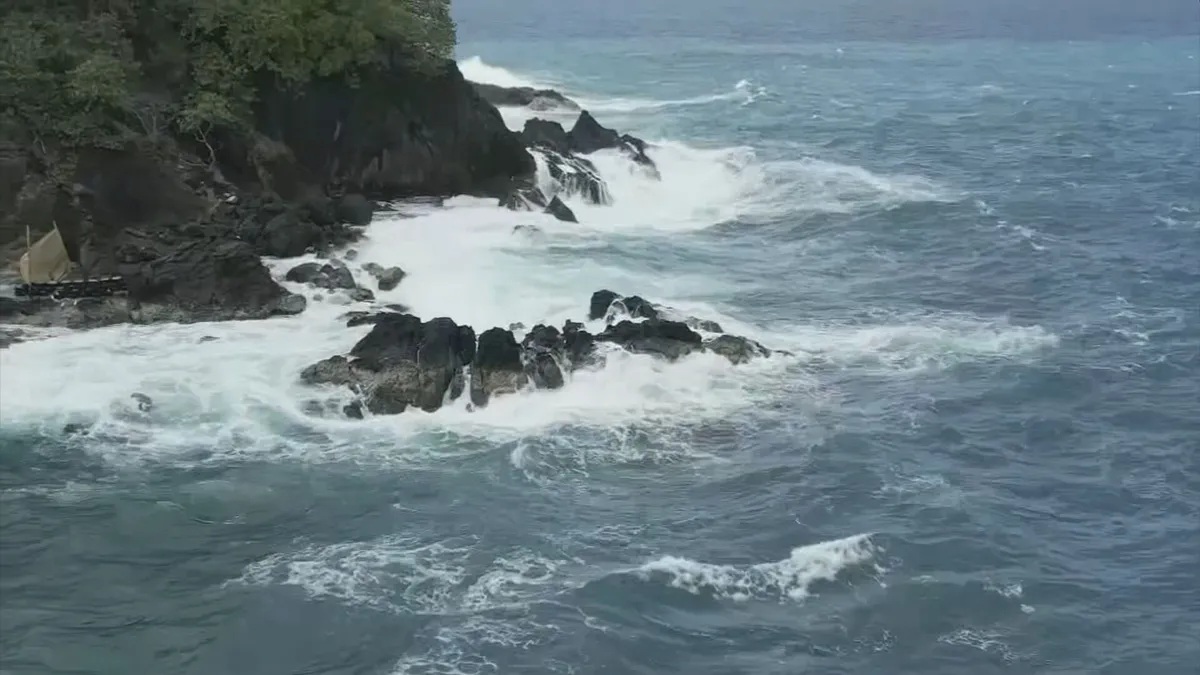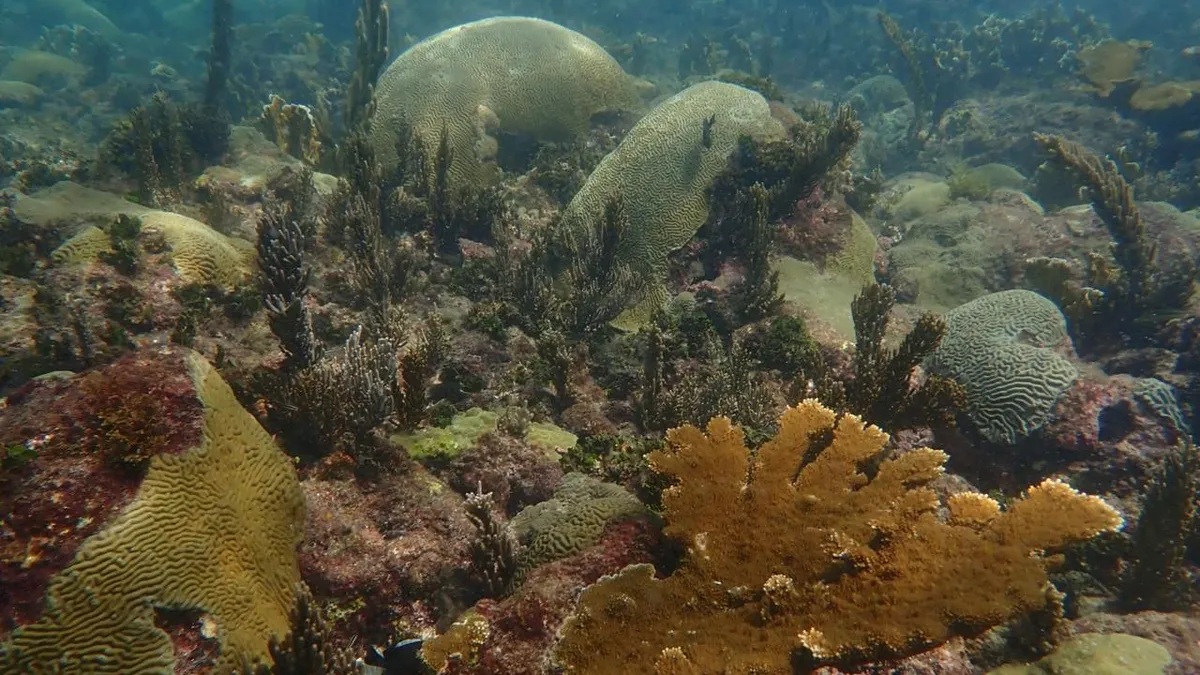Death in the Darien Jungle – Injuries, Lack of Water, and Shortage of Food
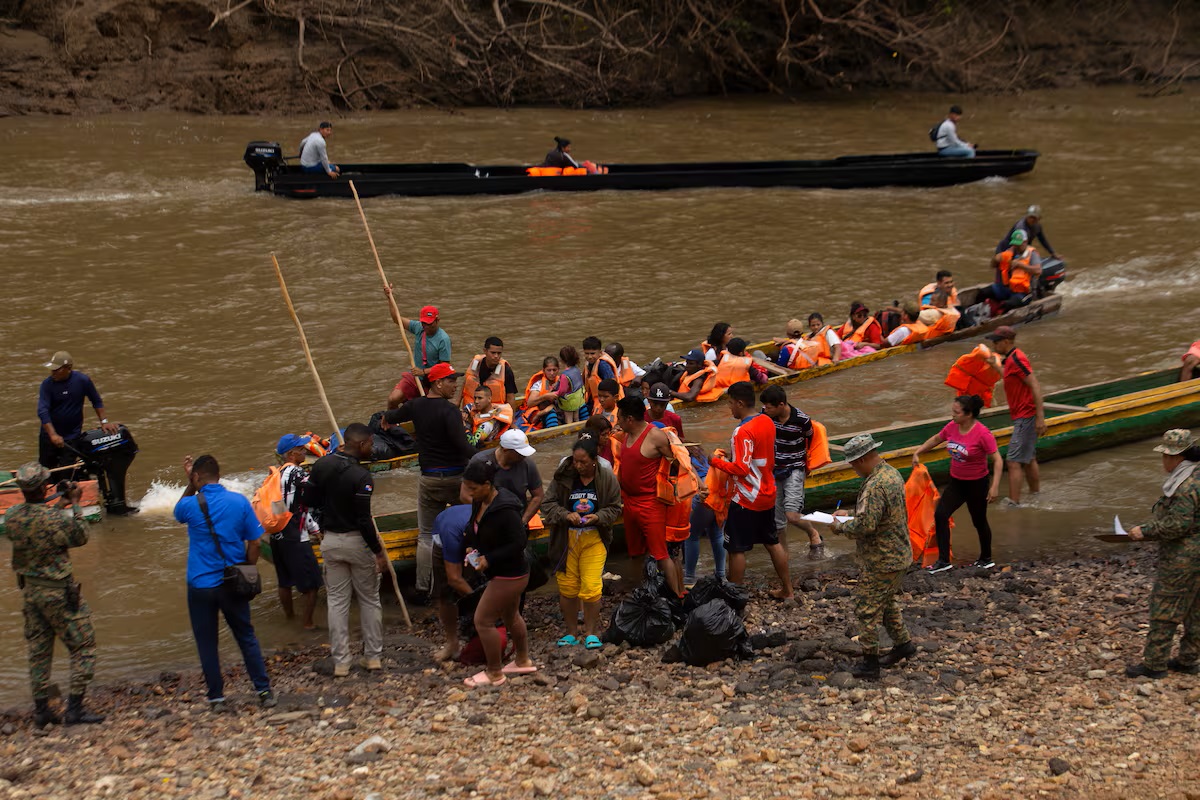
Bone fractures, along with a lack of water and food are what we are hearing from these Darien travelers. An injury or a shortage of food can mean death in the Darien jungle, the natural border between Colombia and Panama that hundreds of migrants cross every day, impeding the difficult advance along cliffs, trails and rivers. Some die, others manage to survive thanks to the solidarity of anonymous travelers. “I fell, I stepped on a mud hole and I fell, I hit the ground with all my weight,” Venezuelan Elsy explains while pointing to her leg. She is swaying, but they quickly hold her from behind so she doesn’t fall. “I was left alone, until I found them,” she says, and looks around her. Elsy is surrounded by a dozen Venezuelan compatriots, most of them young. They are on the banks of the Tuquesa River, a few meters from the town of Bajo Chiquito, and the first indigenous settlement after crossing the Darien for days. They will soon be able to rest after what they experienced in the jungle, where they say they came across seven corpses, “one or two days dead.”
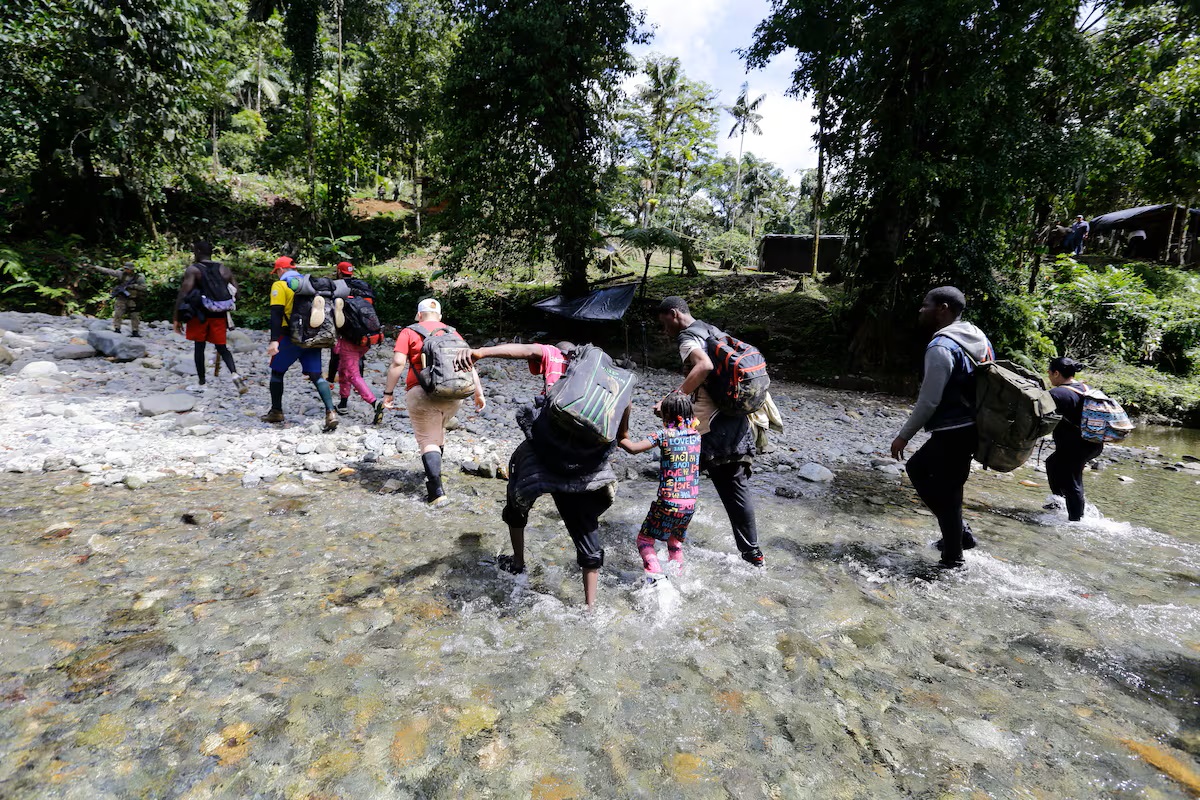
One of the Venezuelans in the group explained that they found Elsy “weak, she was barely breathing,” but she recovered after giving her IVs, feeding her and carrying her on a stretcher. “We rested her in places with shade, we rested her for a while, half an hour, and then we continued.” It was the woman’s ten-year-old son who begged them to help his mother. “He asked us, crying, to please swear to him that we would bring his mother back, that he needed his mother,” explains another young woman, and then points to a companion, “the protagonist,” who came to the rescue. “It’s a life; I wouldn’t wish it on anyone. I just want to see him and tell him ‘there’s your mom’. I told him I wouldn’t leave her behind, and I brought her to him,” explains the young man with a broken voice, crying, and thanking the others for their help. Elsy was lucky. According to the Missing Migrants Project of the International Organization for Migration (IOM), so far this year at least 170 migrants have died or disappeared while crossing the Darien, mostly by drowning (92), followed by acts of violence (35), and 19 by accidents, illness, extreme environmental conditions or lack of water and food.
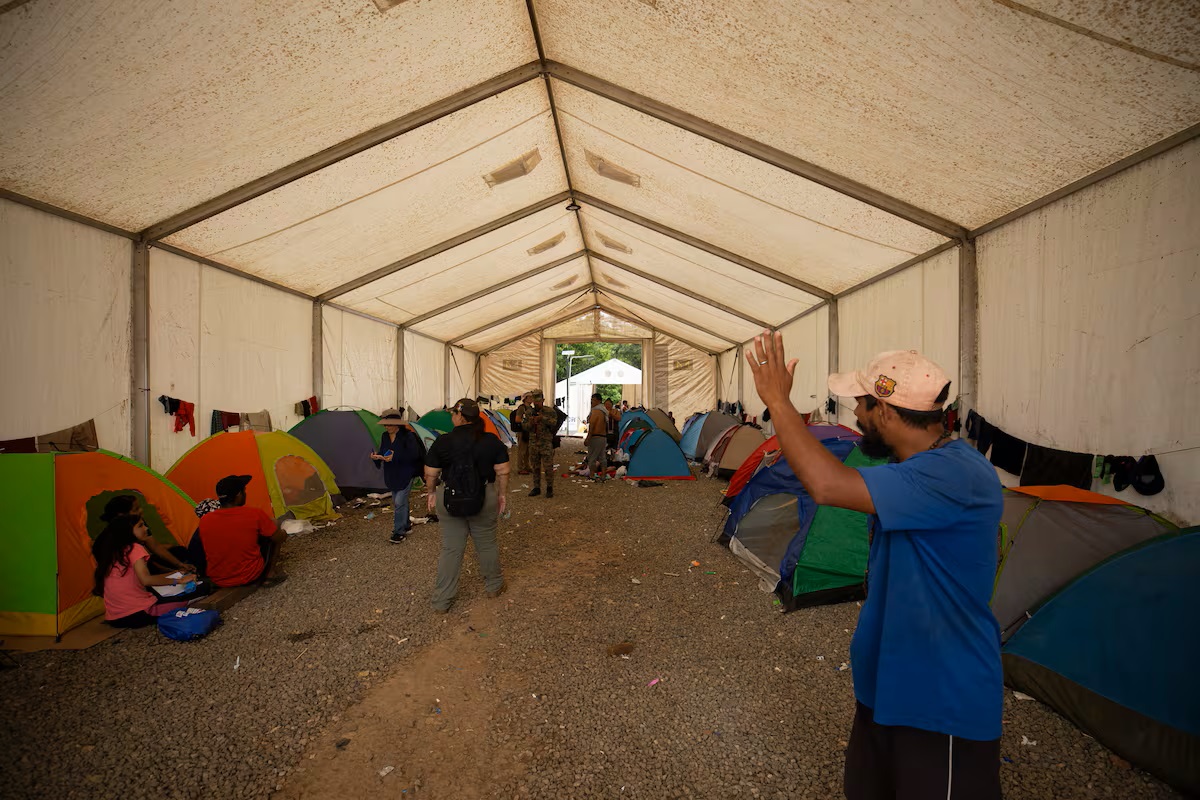
Since they began recording cases in 2014, the project has recorded 440 deaths, with 2024 being the year in which the most deaths have been recorded, followed by 2022 with 146, and 52 in 2023, when a historic record of migrants crossing the Darién was reached, with 520,000. This is despite the fact that, according to data from the Panamanian authorities, there has been a decrease in the number of migrants crossing the Darien, with 274,444 as of October 13, 36.05% less than the 432,211 registered in the same period in 2023. This Friday, Panamanian security forces reported the rescue of a 49-year-old woman. Her teenage daughter had arrived in Bajo Chiquito, warning that her mother had a fracture and could not continue. After locating her, they transported her by canoe to the town, where she received medical attention.
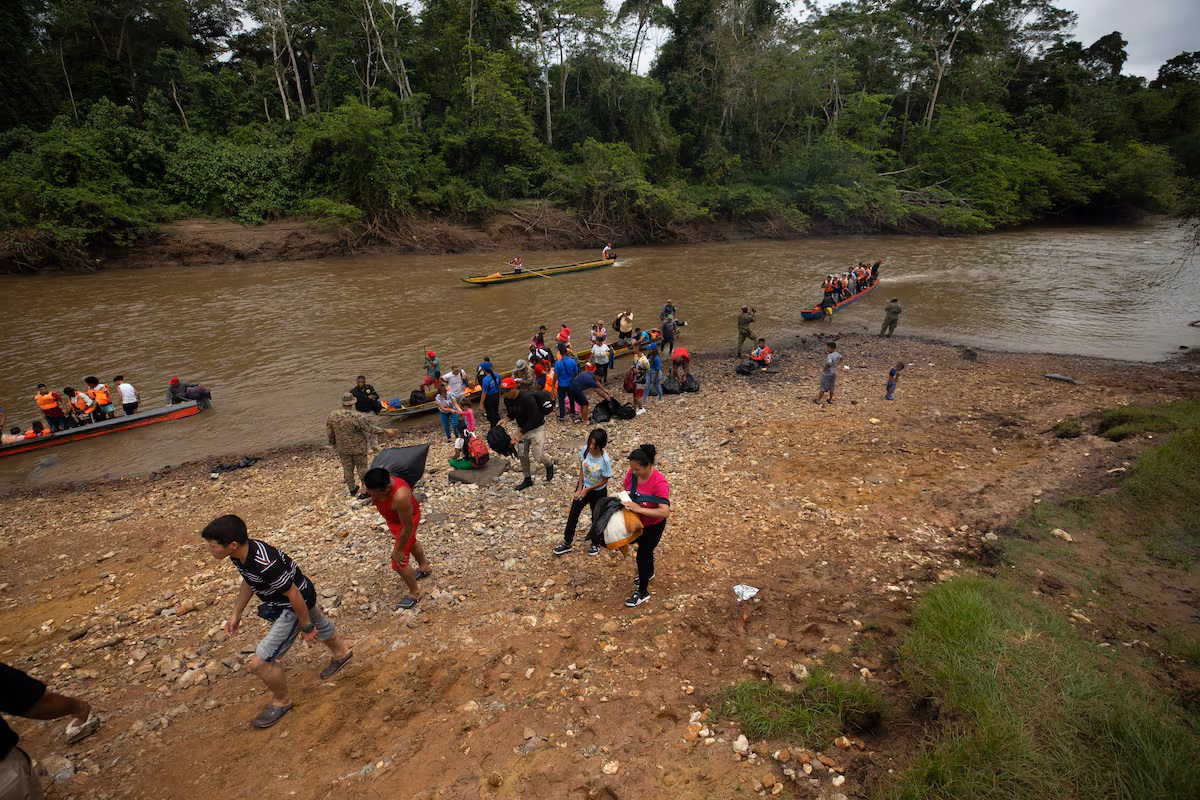
After spending a night in Bajo Chiquito, the migrants continue their journey by canoe to the immigration reception center in Lajas Blancas, where they receive care from Panamanian authorities and international organizations, before continuing their route by bus to North America. In the shelter, in an indoor area with dozens of tents set up, is Eva Mendoza, still traumatized by what she experienced in the jungle. “We spent about six days in the jungle. The jungle was horrible, inexplicable. We saw dead people, at least in my case I lost my family, my group, and I was in the open air of the jungle with my two children, I am a survivor of the jungle,” she says, until the “Red Cross” was able to rescue her in a canoe. Mendoza explains that she “was dehydrated” and her feet had “second-degree burns.” Carolina Castillo, a Colombian woman, is staying in one of the wooden cabins at the migration center with her children, aged six and 14. She has been there for almost four months, waiting for her husband to recover in a hospital in the Panamanian capital after suffering an accident in the jungle. “We were camping and we got caught in the downpour, lightning struck a tree and the tree fell down and covered our campsite. He fractured his leg, his head and his hip, and he has been hospitalized for four months now,” he says, although he adds: “He has improved a lot; he will soon be leaving the hospital.”
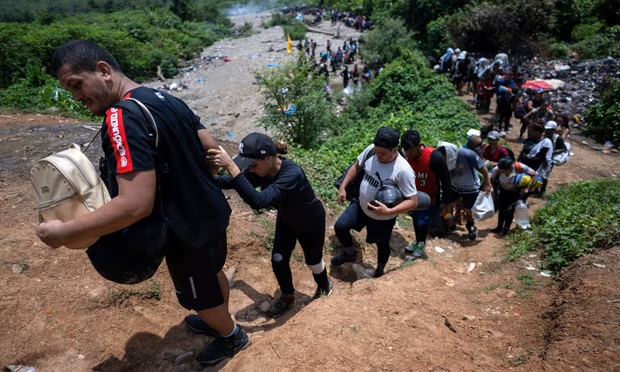
Venezuelan Angela (a pseudonym, she asks not to be identified) says that 14 people, including seven children, set out to cross the Darien, but that the group was gradually growing in the jungle with “many single mothers with their children” who were “abandoned” for advancing slowly. In the end they gathered 45 children in their group. “Of course, since they don’t keep up the pace and they are big kids that have to be carried and everything, they leave them on the road and they wait for the groups that follow and join them. We saw dead people on the way, injured people, we tried to rescue a man, we left him in another camp, but I just found out that he died, an elderly man of about 60 years old,” she says. Other migrants also speak of this man, an Ecuadorian police officer. Angela insists that they tried “to rescue him but nothing happened, he had a wound, it was serious, and he was already very dehydrated, so it was impossible.”


